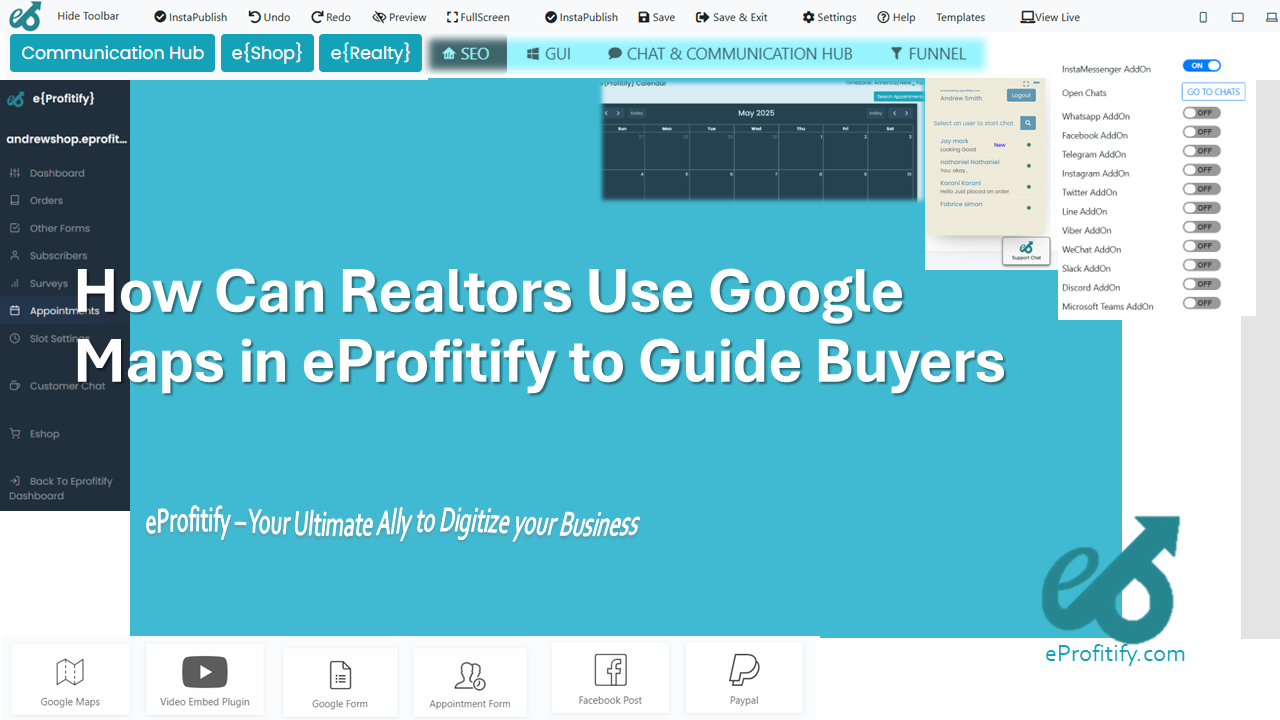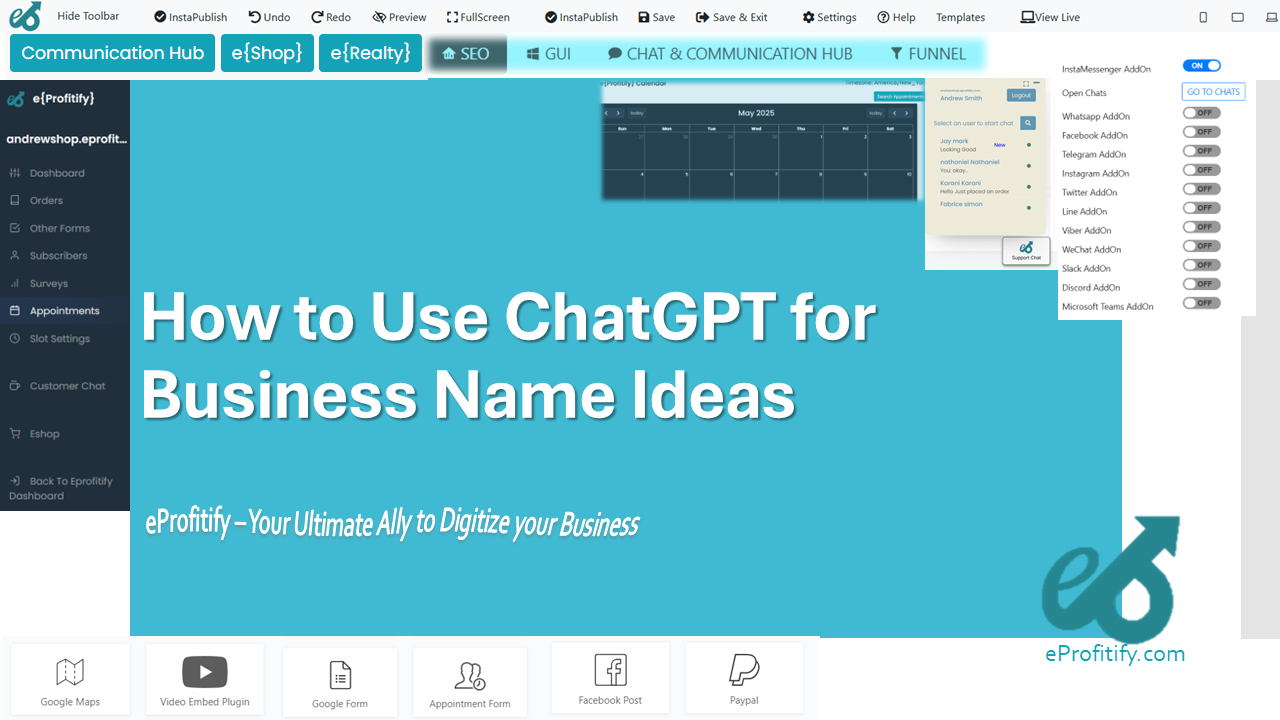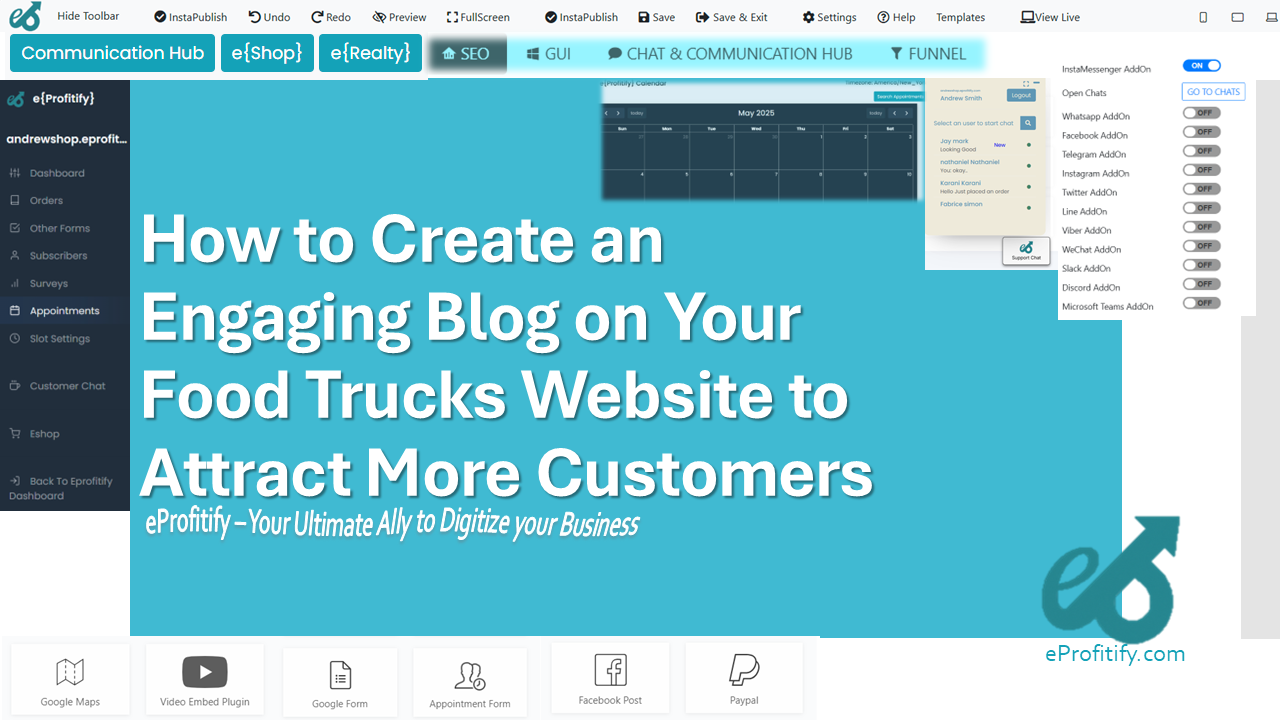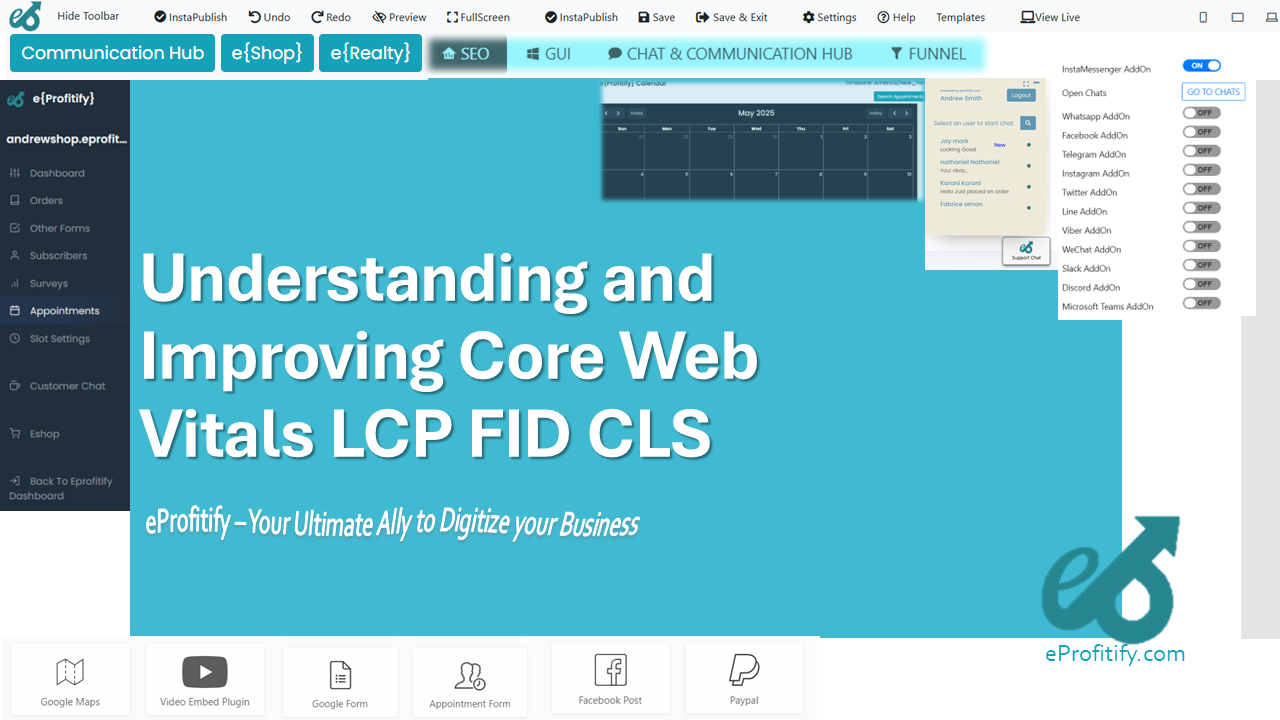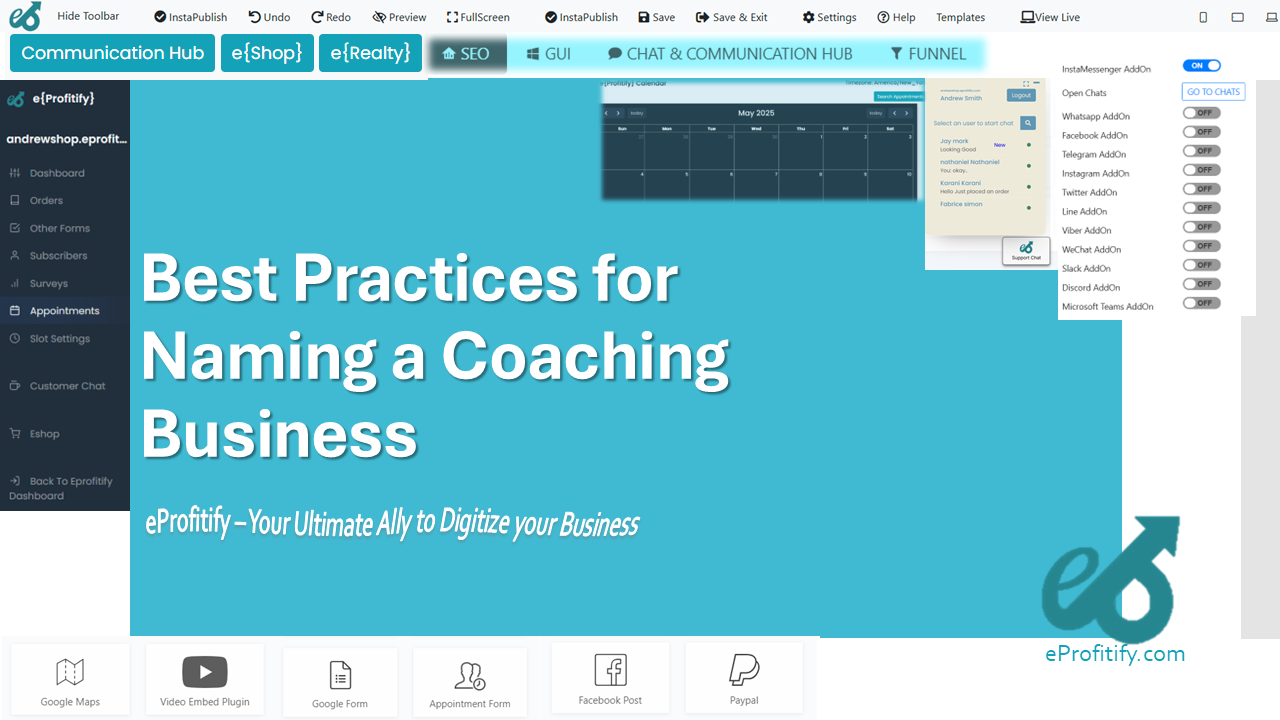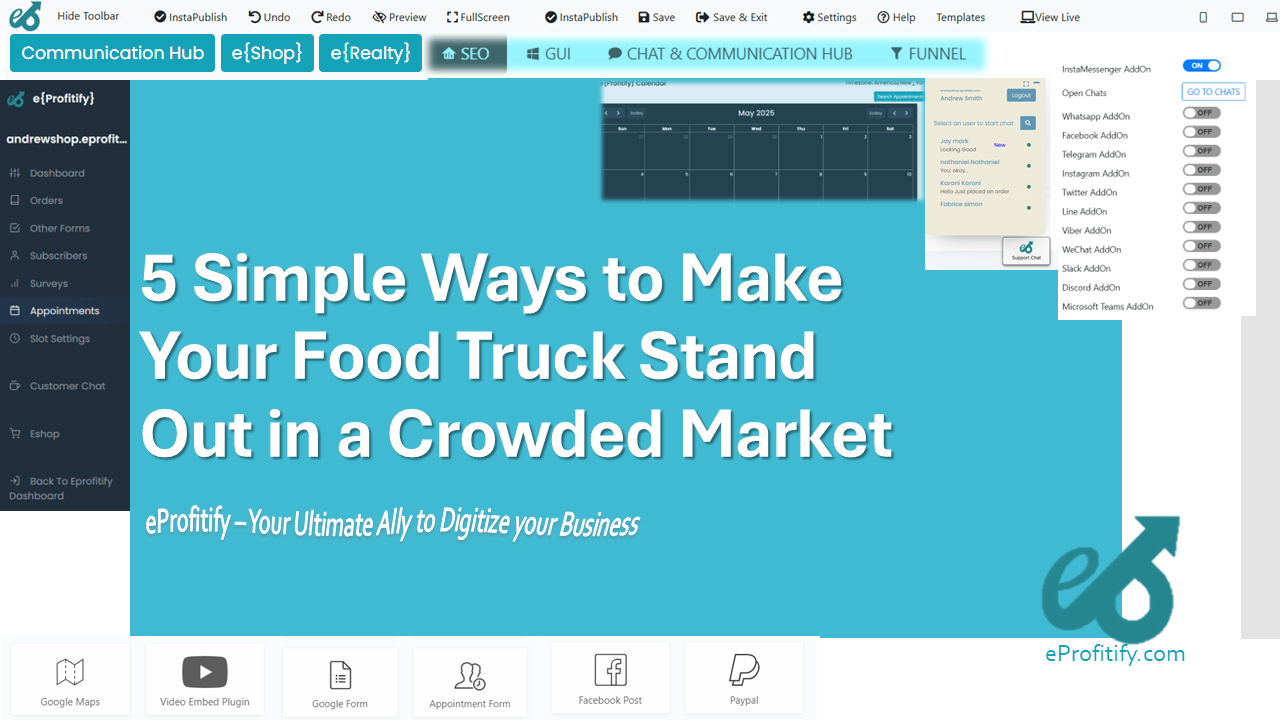Can eShop Module in eProfitify scale Sports Equipment Sellers
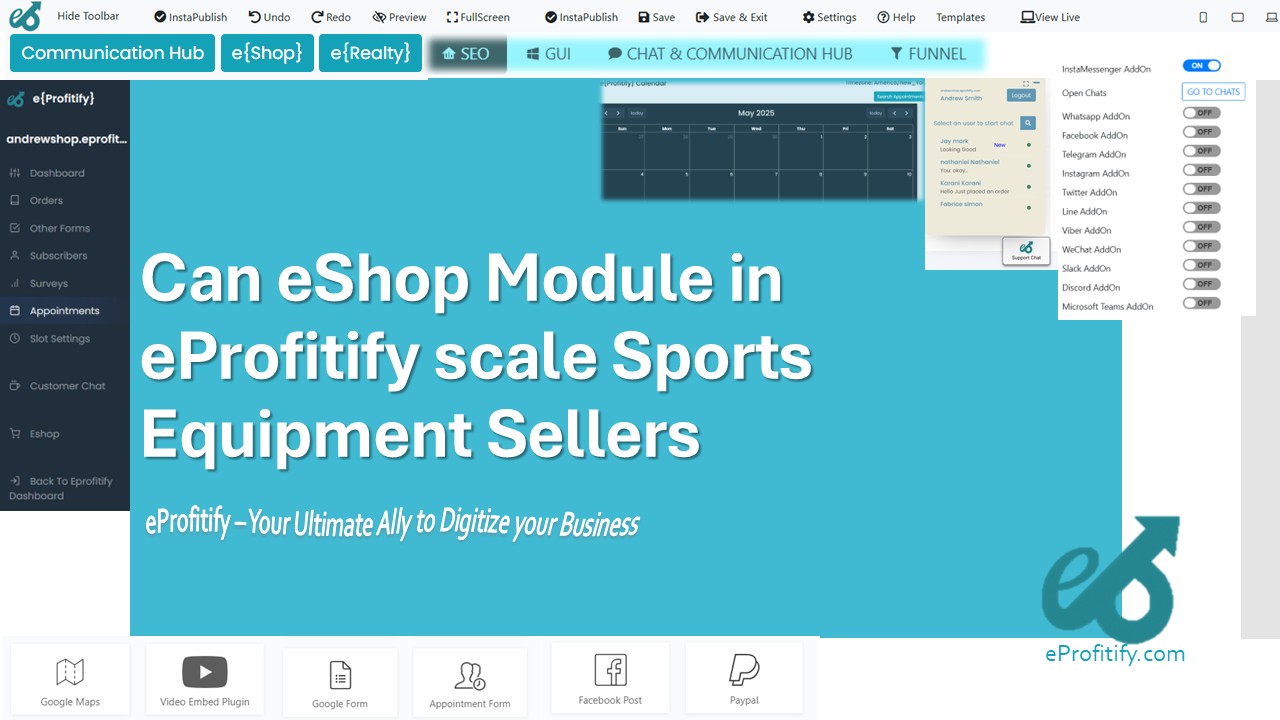
Schedule a LIVE Zoom call with an eProfitify Expert.
The global sports equipment market, valued at approximately $98.2 billion in 2023, is projected to grow at a compound annual growth rate (CAGR) of 8.5% through 2030, driven by rising health consciousness and digital transformation. For sports equipment sellers, scaling in this competitive landscape requires robust tools to manage online sales, customer relationships, and operational efficiency. eProfitify’s eShop Module emerges as a leading solution, integrating advanced features like instant messaging, appointment management, eCommerce, CRM, and analytics to empower businesses in this sector.
Challenges in Scaling Sports Equipment Sales
Sports retailers face hurdles such as fragmented omnichannel presence, inventory mismanagement, and stagnant customer engagement. Post-pandemic, 68% of consumers prefer online shopping, with sports equipment eCommerce sales growing by 21% annually. However, 43% of sellers struggle with cart abandonment due to poor user experience, while 57% cite inefficient CRM systems as a barrier to retention. These challenges underscore the need for an all-in-one platform like eProfitify.
eProfitify’s eShop Module: A Comprehensive Solution
eProfitify positions itself as a top-tier website publishing and management tool, offering tools tailored for scalability. Its eShop Module combines critical functionalities into a single interface, eliminating the need for multiple disjointed platforms.
1. Instant Messaging for Real-Time Engagement
With 82% of customers expecting immediate responses, eProfitify’s instant messaging feature enables retailers to resolve queries in real time, reducing response delays by 70%. This boosts conversion rates, as 55% of buyers abandon purchases if questions go unanswered.
2. Appointment Management System
Personalized consultations drive high-value sales. The module’s booking system allows customers to schedule fittings or product demos, enhancing service quality. Businesses using appointment systems report a 30% increase in average order value.
3. Integrated eCommerce Tools
The eShop Module streamlines product listings, payments, and inventory. Automated inventory syncing reduces stockout risks by 40%, while mobile-optimized storefronts cater to the 54% of users shopping via smartphones. Sellers using eProfitify observe a 25% uplift in mobile conversions.
4. CRM for Targeted Marketing
eProfitify’s CRM tracks customer behavior, enabling segmented campaigns. Retailers leveraging CRM data see 29% higher sales and 34% improved productivity. Personalized email campaigns achieve 18% open rates, driving repeat purchases. Studies show a 5% increase in retention can raise profits by up to 95%.
5. SEO and Analytics
Built-in SEO tools enhance visibility, with users experiencing a 50% rise in organic traffic. Real-time analytics provide insights into sales trends, helping businesses optimize strategies. Sellers using data-driven decisions report 20% higher revenue growth than competitors.
Impactful Statistics and Outcomes
- Sports retailers using eProfitify’s eShop Module average a 35% reduction in operational costs due to automation.
- Mobile commerce adoption via the platform increases customer reach by 60% in emerging markets.
- Businesses report a 45% improvement in customer satisfaction scores after integrating instant messaging and CRM tools.
Conclusion
eProfitify’s eShop Module addresses critical pain points for sports equipment sellers, offering scalability through seamless integration of eCommerce, CRM, and engagement tools. By reducing friction in online sales, enhancing customer relationships, and leveraging data-driven insights, the platform enables retailers to capitalize on the booming $98.2 billion market efficiently. As digital transformation accelerates, eProfitify stands out as a leader, equipping businesses to thrive in an era where agility and customer-centricity define success.



